From Jimmy Choos to mountain cheese
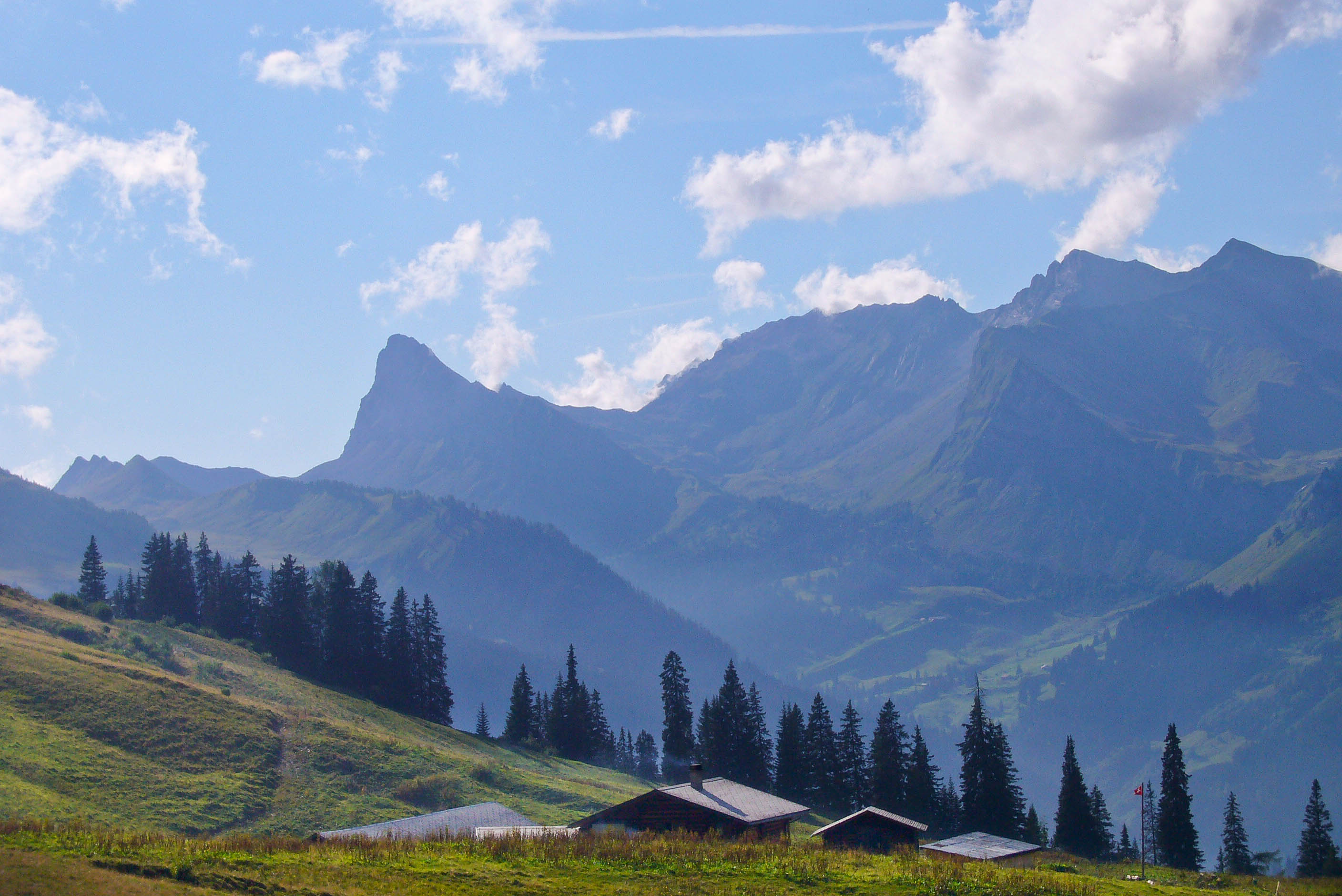
The scenery is idyllic, the work extremely tough. Three women from big cities have signed up for a summer on the alps.
Christiana from Berlin, Marlene from Vienna and Carolyn from Munich are all spending four months on Alp Ludera in canton Graubünden.
It’s five in the morning. The alarm clock goes off and the three workers are soon up and about. Christiana, the herdswoman, fetches the cows from the meadow and drives them into the stall. Every cow has its place, number and name.
The day slowly dawns, and the full glory of the mountains can be seen. Marlene, the dairywoman, sparks up the wood oven and gets everything ready for the cheese-making.
Before the 60 cows are plugged into the milking machines, everyone has a hearty breakfast. An additional 20 cows are out in the meadow on “maternity leave”. They are due to give birth soon and are therefore not milked.
Alp Ludera lies at an altitude of 1,798 metres and belongs to the village of Fanas in canton Graubünden, eastern Switzerland.
The hut is new and well-equipped with a washing machine, shower and a modern dairy. Eight farmers from Fanas have entrusted their cows to the foreign herders.
Marlene, a 27-year-old biological agriculture graduate who learnt to make cheese in Switzerland, praises the relationship with the farmers.
“We are appreciated and get the necessary support. They are great, dedicated farmers,” she told swissinfo.ch.
Foreign imports
What’s more, they are not badly paid compared with other alpine workers, earning around €8,000 (SFr9,100) each for four months’ work.
“[The local farmers] do a good job. When our scythe bust, a new one was there within two days. They provide the infrastructure, which is obviously in their interest because they want the cows to come back down healthy and produce good cheese,” said Carolyn, a 41-year-old educational social worker.
Because farmers find it increasingly difficult to attract Swiss workers to the traditional alpine job, more and more foreigners are being hired. Latest estimates put the figure at a third.
Christiana, 32, says it’s sad when Swiss hikers ask her what she’s doing here.
“I know the place like the back of my hand and don’t feel foreign – I feel at home. The tourists should instead be happy that we’re doing this work with enthusiasm,” she said.
Cheese cellar
The 750 litres of milk from the past three days produces 15 wheels of semi-hard cheese, each weighing five kilogrammes.
These are then stored in the cheese cellar, where they will be “nurtured” over the coming weeks.
At the start of summer 900 litres of milk was produced a day, but now the meadows are slowly being eaten away and there’s less feed – and, as a result, less milk. August is not so busy and there’s occasionally time to gather berries and herbs.
Meanwhile, Christiana drives the cows back to the meadow, with the sound of cowbells ringing in her ears.
She occasionally slaps one of them on their bony rumps, while Carolyn yells out “hoppa, hoppa”. The barking dog brings up the rear.
“Close to nature”
“Here you are extremely close to nature and animals,” said Carolyn. “And when a colleague pops out of the stall and you grin at each other, then I know there’s someone else in the world as crazy as me. We have a common goal. Those are little moments of happiness.”
It’s vital to be on the same wavelength as working on the alp is extremely demanding, especially in the initial weeks, when 15-hour days are the norm.
“Everything’s new – for us, but also for the cows,” said Carolyn, who is on her second summer in the alps.
The women met at an alpine workers’ get-together in the German town of Witzenhausen and decided to work for a summer on the cooperative in Ludera.
The three townies consider themselves a sort of “community of fate”: they work, live and eat together and share everything – good and bad.
Draining
Working on the alps is draining. “You wouldn’t be able to stand it for more than four months,” said Marlene, who nevertheless has mixed feelings about the approaching return to Vienna.
“Here the sun and the cows decide what happens. When I return to Vienna, I’ll ask myself what the point is of all the noise, the crowds and the sensory overload. Eyes and ears are swamped. Up here it’s the rhythm of nature that governs everything.”
For Carolyn the alp is a “landscape of the heart”, a place that makes her feel good.
“Here no one interferes in our lives. We have a task, but how we do it is up to us,” she said.
Even though she’s looking forward to returning to the city, she says she’ll miss the size and openness of the mountains.
“On the alp I stretch out; in the city I have to contract again so as not to get in people’s way.”
Switzerland has 7,300 alpine enterprises. This number is continually decreasing due to consolidation and relinquishment of holdings.
In 2010, 384,988 animals were taken up the alps, the same number as the previous year: 93,000 dairy cows and 31,000 mother cows, about 260,000 cattle and calves, 4,400 horses, 29,000 goats, 180,000 sheep, 600 exotic animals such as buffalos, yaks, llamas, and 300 geese.
No records exist of how many people spend the summers on top of the alps, but it is estimated at 14,000. A third comes from abroad, predominantly Germany, Austria, and Italy.
In areas of Switzerland where many private alps exist, such as inner Switzerland or the St Gallen uplands, there are fewer non-Swiss working.
The salaries for herders and cheese makers vary widely. The recommended wages of SFr155-200 ($185-240) a day for herders and SFr135-175 a day for cheese makers are not always adhered to. Private and smaller alps cannot or do not pay these wages.
(Translated from German by Thomas Stephens)

In compliance with the JTI standards
More: SWI swissinfo.ch certified by the Journalism Trust Initiative
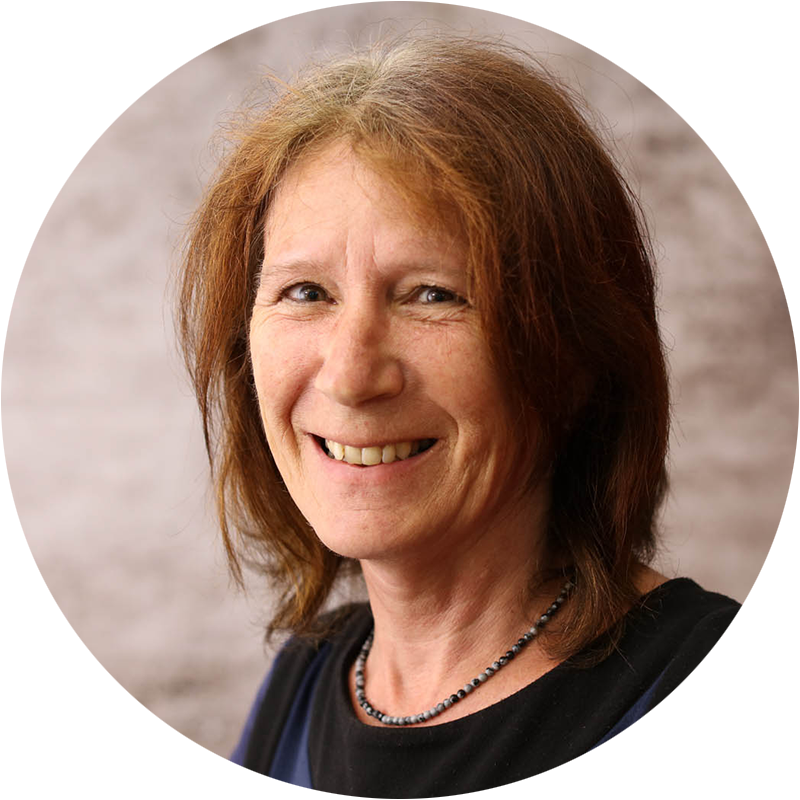
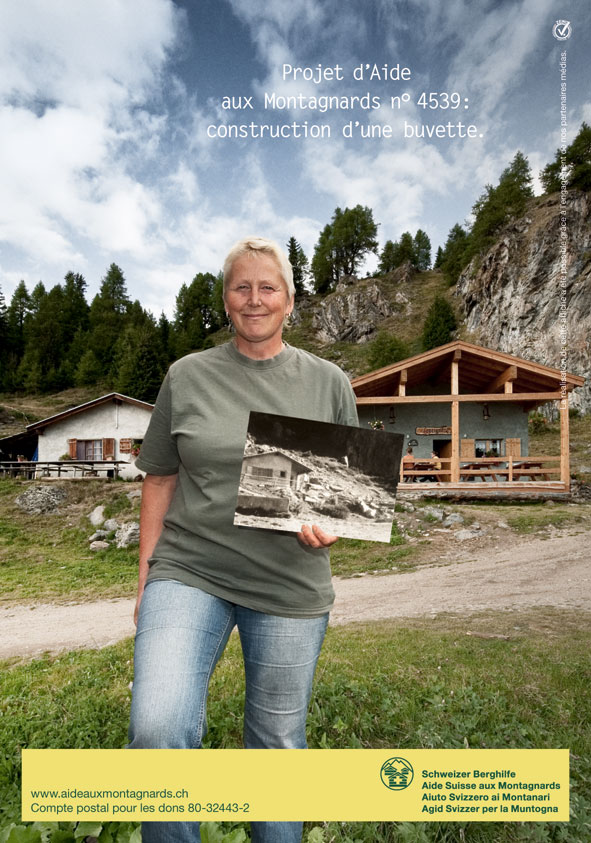

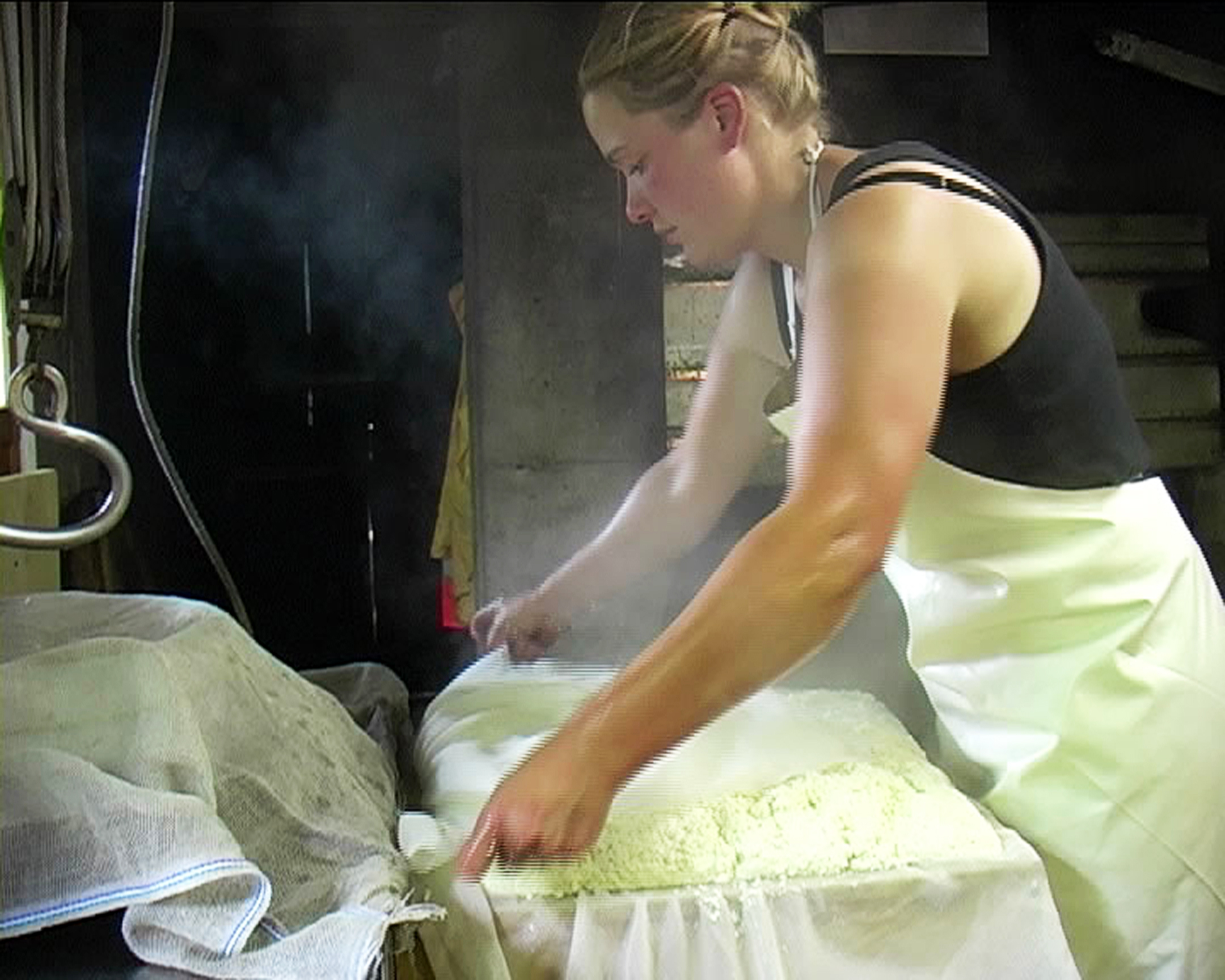
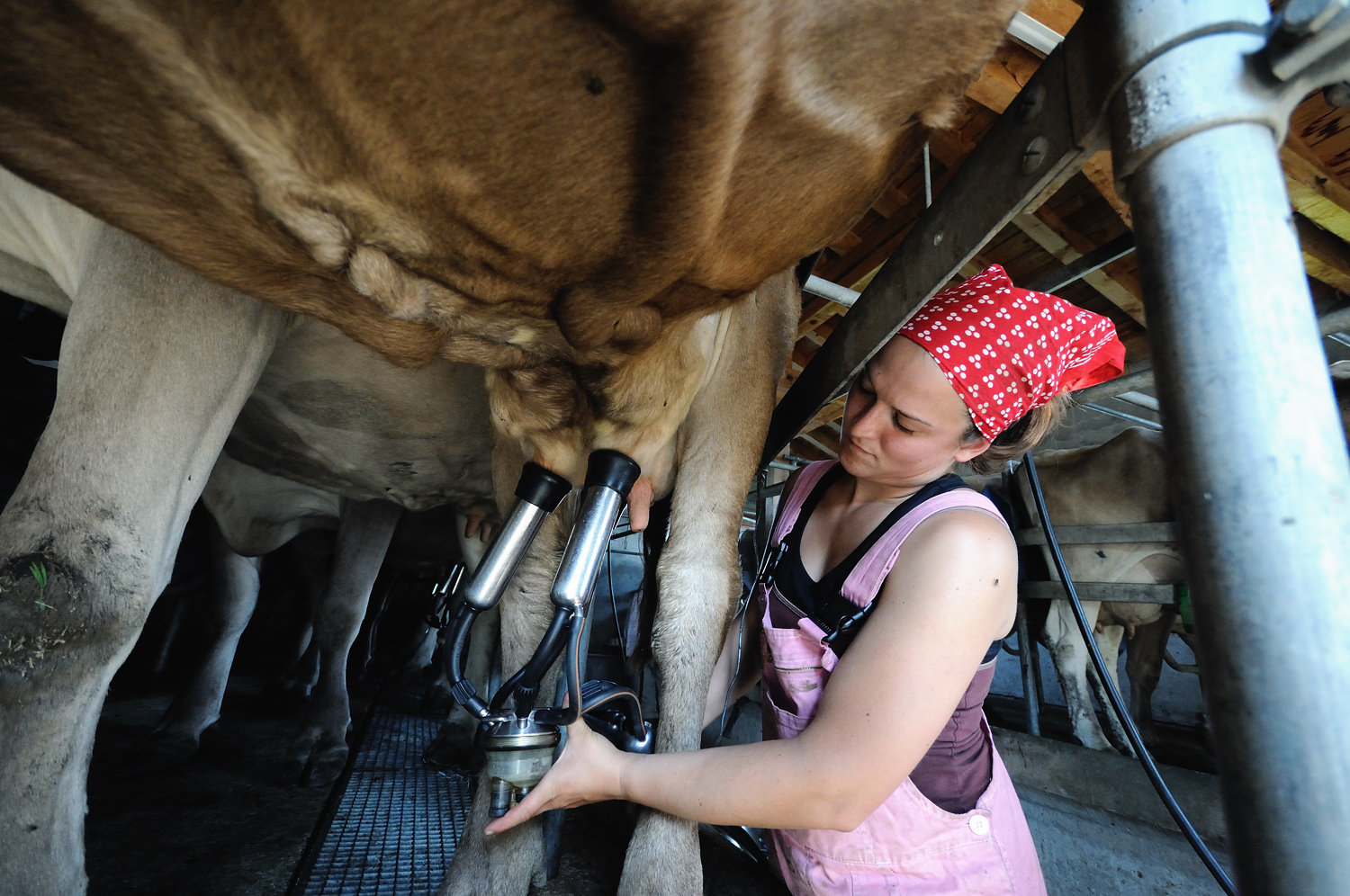
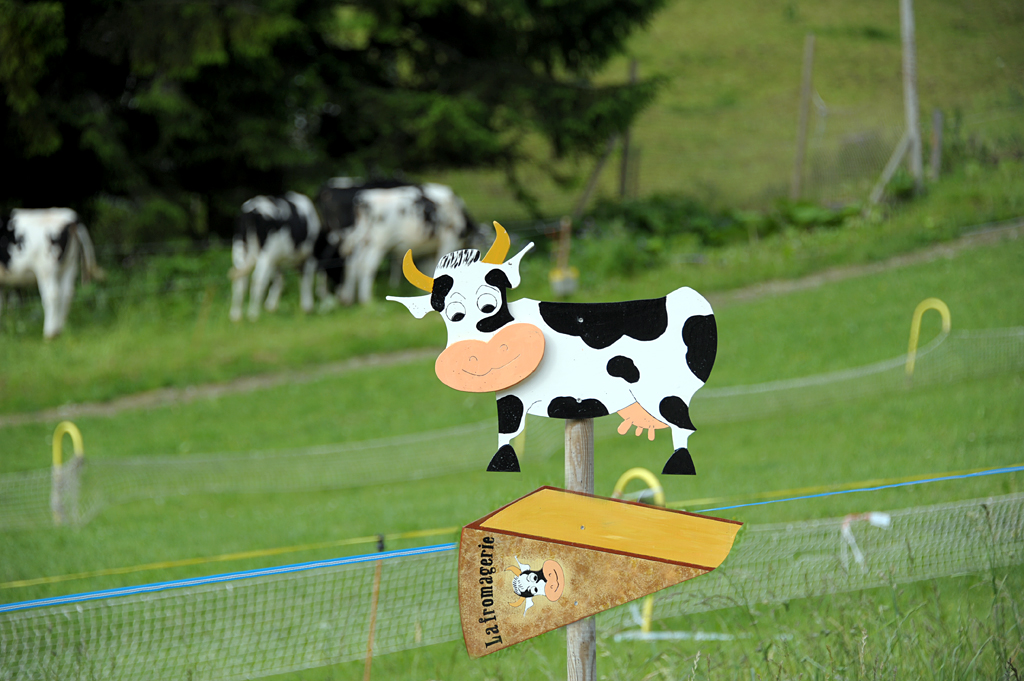
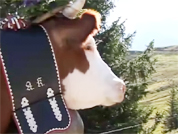
You can find an overview of ongoing debates with our journalists here. Please join us!
If you want to start a conversation about a topic raised in this article or want to report factual errors, email us at english@swissinfo.ch.